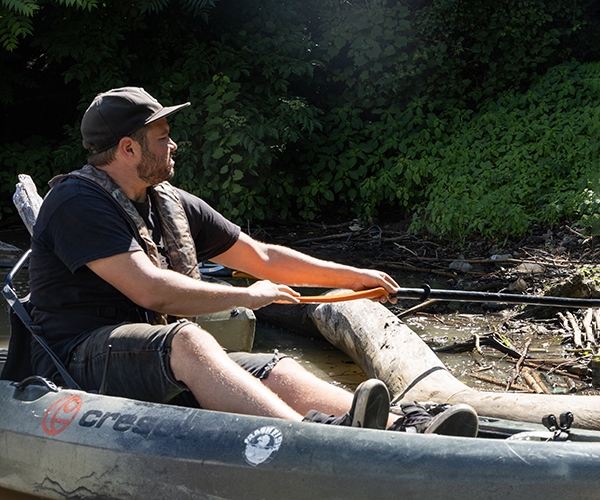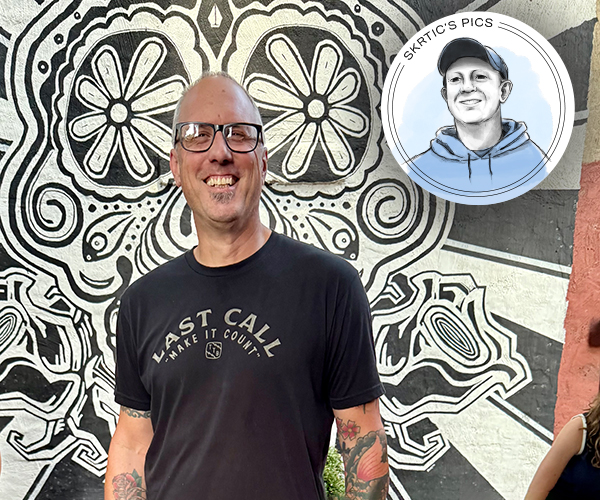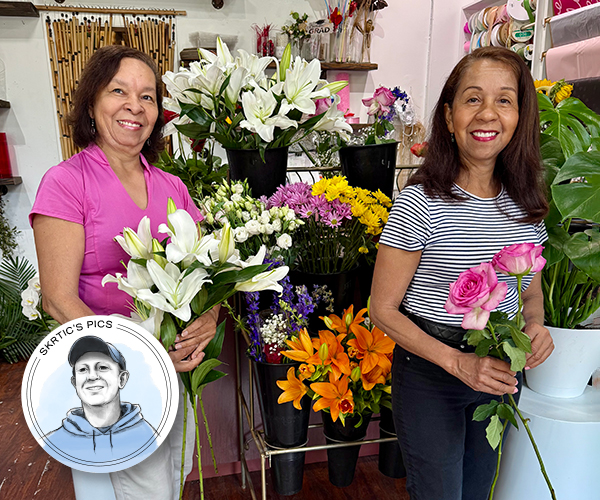Fatina Salaheddine stood in the lobby of The Cleveland Clinic's Omni International Hotel, nervously waiting for the sheik's entourage to arrive.
Not even a year out of college, the 22-year-old was about to serve as hostess for Middle Eastern royalty. It was fall 1999, and Sheikh Zayed bin Sultan Al Nahyan — president of the United Arab Emirates, ruler of the emirate of Abu Dhabi, whose $23 billion fortune makes him one of the world's richest men — had just arrived in town for a stay at The Cleveland Clinic. He was importing much of his government and royal entourage for the occasion.
When the doors opened, dozens of men — advisers in suits, relatives in flowing white robes and headcloths — crowded into the lobby, trailing suitcases. The women entered through a back door, out of sight from the men, who were forbidden to see them indoors.
"It felt like I was in 'A Thousand and One Arabian Nights,' " Salaheddine says.
As organized as an army, with the politeness of diplomats, the entourage quietly lined up to wait for their rooms. Salaheddine passed out a list of cell-phone numbers so that everyone could stay in contact. Then the men filed off to their rooms, maneuvering past the dividers that separated their elevators from the women's.
From 1998 to 2000, Salaheddine catered to the dozens of foreign VIP guests, many of them from the Middle East, who visited the Clinic each month for surgeries, tests and checkups. As guest-relations manager for the Omni International Hotel and the InterContinental Suite Hotel on the Clinic's campus, she was the greeter, guide, troubleshooter and confidante for members of the Saudi royal family, ambassadors, the prime minister of Lebanon, factory owners from Turkey and an Egyptian supreme court judge.
"You could actually call me a major-league VIP concierge," she says.
She greeted guests at Burke and Hopkins airports, showed them their hotel rooms and put limousines at their service. She took them shopping and out to dinner, dispatched their personal chefs to Middle Eastern grocery stores and had chocolates, flowers and fruit baskets sent to their rooms. She consoled their worried wives and children during their surgeries. She saw, up close, how the Clinic attracted millions of dollars for itself and for Cleveland: how its spacious suites and attentive service made its wealthy clients feel they were in a palace away from home.
The daughter of Lebanese immigrants, Salaheddine grew up speaking fluent Arabic. Her father worked for a Middle Eastern airline and her mother's family used to travel across the Mediterranean on a yacht. Their Akron-born daughter has traveled across Europe and the Middle East, and dresses the part of an international sophisticate: her golden watch, earrings, necklace and rings gleam as perfect accents to her leopard-print blazer. She tells stories about the Clinic's VIPs with wide-eyed enthusiasm and confidence in her knowledge of Arab culture. A go-getter who headed the University of Akron's Lebanese club and put on local concerts by Lebanese singers, she says she landed the guest-relations job after interviewing for a translator position with the Clinic's international program.
Her multicultural grace, striking beauty and disarming, chatty charm helped her put Middle Eastern guests at ease. A former college homecoming queen, she says male VIPs sometimes proposed marriage to her, while women offered to arrange marriages with their sons.
Mostly, Salaheddine's job called for diplomacy and troubleshooting. Her first clients, a Saudi couple who flew into Burke on a private jet, called her their first night at a Clinic hotel. "I'm thinking it's a major emergency," she recalls. "It's 2 a.m. So I call back." It was the middle of Ramadan, the month when Muslims fast during the day, and the guests were still hungry. But they couldn't speak English, so they asked her to relay their order to the hotel worker at their door.
When the Clinic's new InterContinental Suite Hotel opened in late 1999, Salaheddine had to make sure the top-floor VIP suite was equipped with satellite TV for the head of a Turkish TV station. He insisted on watching his channel's broadcast during his stay and sent over a satellite dish to ensure the hotel would be ready.
Sometimes, she became a tour guide, taking guests to the Hard Rock Café and the Warehouse District's restaurants. Once, she arranged for a seven-course meal at the Ritz-Carlton for a Saudi sheik.
She also set up shopping sprees, taking VIPs to Beachwood Place, which had the pricey brands they sought: Gucci, Versace, Chanel. Salaheddine even convinced mall management to close Beachwood Place to the public for two hours one day in September 1999 so that the entourage that followed the United Arab Emirates' president could shop in privacy. One princess bought loads of furniture for her new home in London. One of the president's wives swept through the jewelry departments, browsing through the display cases and buying up entire rows of pins. "You could see all the employees' mouths drop right open," Salaheddine recalls. "Everything was paid for in cash."
She even watched out for her guests when no one else was looking.
Sly limo and cab drivers, who knew some sheiks tipped with $100 bills, would hang out in the hotel bar, chat up the VIPs, then offer their services. Salaheddine shooed them away.
Often, Salaheddine was there for people when they needed her most, offering comfort and consolation to families of ailing VIP patients. She'd sit and read the Koran or offer a gesture of support. "I felt like I had to be a therapist, speaking in Arabic, [saying], 'It's going to be OK.' "
In summer 2000, Sheikh Zayed, the United Arab Emirates' president, returned to the Clinic for a kidney transplant. Salaheddine was escorted into his suite — a spacious, homey space, full of Persian rugs and draperies imported by the president's aides — where the weak and jaundiced president lay on the bed before his operation. She greeted him, walked up to his bed and sat down on its edge.
"I had five advisers jump up at me, like, 'How dare you sit on [his] bed.' " But the sheik laughed and told her to sit.
The sheik was watching a Middle Eastern TV channel that was rerunning a miniseries about a famous Arab singer. Salaheddine asked the sheik if he'd seen the series and he cracked up, surprised she knew about the singer.
"When I had left that room, the one adviser who was the meanest person to me was the nicest person. He said to me, 'You know what? That was the first blush of color we've seen on [his] face since we arrived in America.' "
Rich patients, especially Middle Easterners, have jetted to Cleveland for decades, seeking the best health care they can buy. Saudi Arabia's late king, Khalid ibn Abdul Aziz, visited the Clinic twice in the 1970s and underwent bypass surgery. The late King Hussein of Jordan came for a checkup once in the '80s.
Foreign patients — especially the very rich — are a lucrative market for U.S. hospitals. They pay the full price for care, not the discounts health plans negotiate. The Clinic's 5,500 foreign patients made up 4 percent of its total patients but provided 10 to 12 percent of its revenue in 2001, or $45 to $50 million.
The competition to attract such patients is fierce. Salaheddine says she often flew to Washington, D.C., for lunch or dinner with the medical attaches at Middle Eastern embassies, who set up stays at American hospitals for their countries' citizens. Every November, she says, the Clinic threw a reception in Washington for the embassy staffs — keeping up relations in the hope that the embassies would send more patients to Cleveland.
Once here, VIP hospital patients are treated in furnished rooms on a special wing of the main hospital's seventh floor. Their families stay in the well-lit, luxurious rooms at the InterContinental Suite Hotel on the Clinic's campus. The top-floor suite resembles a penthouse apartment, Salaheddine says, with three bedrooms, a kitchen and a living room that looks out on the Cleveland skyline, and a big-screen TV that rises from the floor. (A second InterContinental Hotel, even more sumptuous, is scheduled to open at the Clinic in April.)
Salaheddine made sure that all VIP guests had flowers and a personalized note greeting them in their hotel rooms. Chocolate truffles were arranged to spell out the word "welcome" in Arabic. Butlers, on call 24 hours a day, helped with room service and luggage.
She also taught monthly classes for hotel workers about the dos and don'ts of serving Arab and Muslim guests. Don't vacuum their prayer rugs, she told them. Don't suggest pork when they're ordering dinner. Don't compliment them much on their jewelry, or they'll feel compelled to give it to you. And don't look the women in the head-to-toe coverings in the eye.
Salaheddine says her contacts at the Clinic tell her the international program has suffered since the Sept. 11 attacks. "It's a ghost town," she says. The government has tightened visa restrictions on citizens of certain Arab countries, and Middle Easterners have become scared of American prejudice. (The Clinic would not discuss whether its foreign business has declined.)
In 2000, Salaheddine left her old job to concentrate on her own businesses, her concert- and wedding-planning company and a new Arab-American newspaper, Al-Sahafa, which she publishes from an office on Lorain Avenue in Cleveland's Little Arabia. Most of her advertisers are Arab-American businesses she first got to know while showing Middle Eastern Clinic patients around town.
Salaheddine knows the Clinic has a reputation in town for serving the elite. It's also a good community hospital, but the news about its efforts isn't getting out, she insists. So she's quick to note that the VIP visits benefit Cleveland's economy, since the sheiks and factory owners spend their money on hotels, restaurants and limo drivers, and at malls and Middle Eastern groceries. Sheikh Zayed quietly bought computers for a local school and has paid the hospital bills of some fellow Clinic patients, she adds.
"Arabs bring such culture, and customs, and another way of life" to Cleveland, she says. "They love Western culture."



